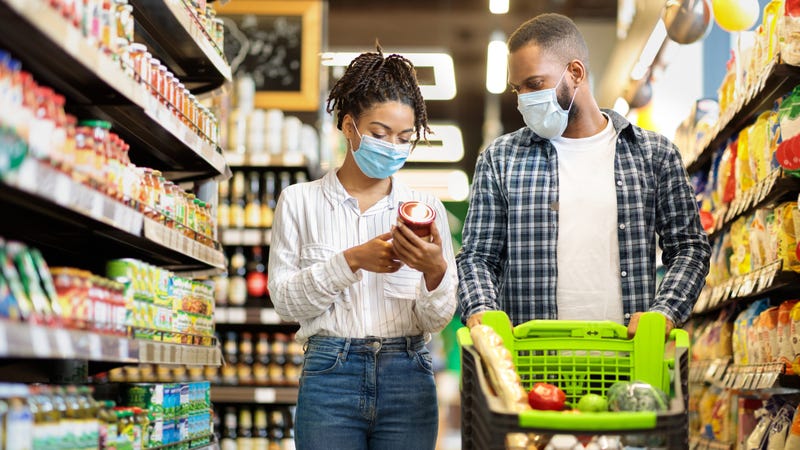
CHICAGO (WBBM NEWSRADIO) -- The City of Chicago’s new, indoor mask mandate goes into effect Friday.
Chicago is once again seeing a rise in COVID-19 cases, cased by the highly contagious Delta variant. Additionally, COVID-19 hospitalizations and deaths have gone up in recent weeks.
Chicago Department of Public Health Commissioner Dr. Allison Arwady said the city is averaging more than 400 new cases of COVID a day, and that once the numbers drop significantly below that, the mask mandate will be dropped again. But, Chicago will need to stay below the 400 marker for several weeks before the mandate is removed.
She added that getting vaccinated is the best way people can protect themselves and others from COVID-19, but wearing a mask also helps.
“I do think masks are making a difference,” Arwady said at a Tuesday news conference announcing the mandate.
Dr. Arwady added that she believes Chicago will be going through the Delta surge for at least the next three weeks, and possibly a month or two.
“Please know, these masks are not forever; they’re to get us through Delta. And they do help protect everybody,” Dr. Arwady said Thursday.
So where do you have to wear masks?
For now, everyone over the age of two, regardless of vaccination status, is required to wear masks in indoor, public places, including in bars, restaurants, grocery stores, gyms, private clubs, and in common areas in condo and apartment buildings.
Note: masks can be removed when a person is actively eating or drinking somewhere indoors; and they can be taken off for things that require their removal, like beard shaves and facials.
Additionally, under federal guidelines, masks are required when on public transportation, including planes, trains, and buses; and in healthcare settings, schools, and correctional and congregate settings, like nursing homes and prisons.
No masks are required outdoors under Chicago's new mask mandate, but the city does recommend unvaccinated people wear masks in crowded outdoor settings.
Currently, more than 54 percent of all Chicagoans are fully vaccinated. Nearly 60 percent have received at least one dose.



